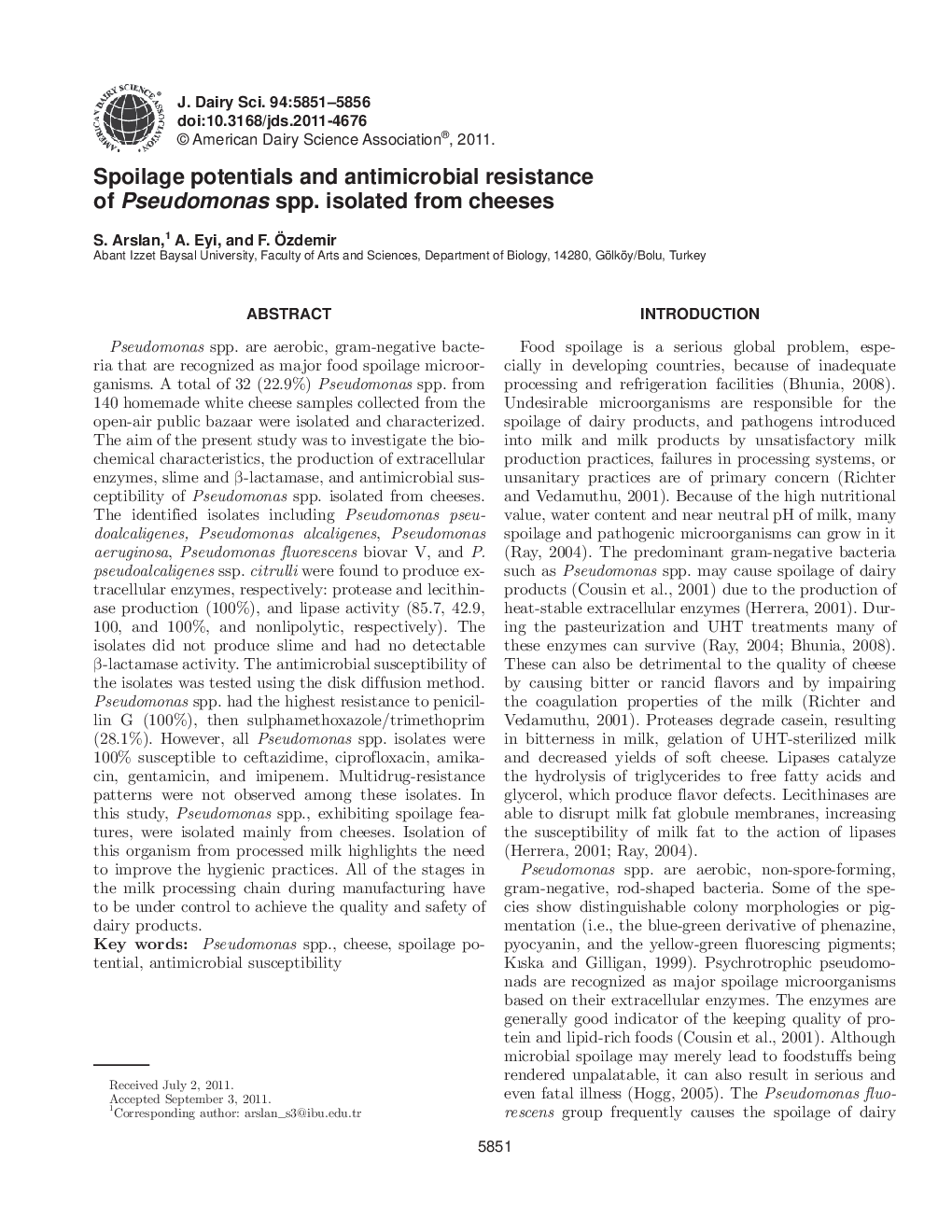| Article ID | Journal | Published Year | Pages | File Type |
|---|---|---|---|---|
| 10981639 | Journal of Dairy Science | 2011 | 6 Pages |
Abstract
Pseudomonas spp. are aerobic, gram-negative bacteria that are recognized as major food spoilage microorganisms. A total of 32 (22.9%) Pseudomonas spp. from 140 homemade white cheese samples collected from the open-air public bazaar were isolated and characterized. The aim of the present study was to investigate the biochemical characteristics, the production of extracellular enzymes, slime and β-lactamase, and antimicrobial susceptibility of Pseudomonas spp. isolated from cheeses. The identified isolates including Pseudomonas pseudoalcaligenes, Pseudomonas alcaligenes, Pseudomonas aeruginosa, Pseudomonas fluorescens biovar V, and P. pseudoalcaligenes ssp. citrulli were found to produce extracellular enzymes, respectively: protease and lecithinase production (100%), and lipase activity (85.7, 42.9, 100, and 100%, and nonlipolytic, respectively). The isolates did not produce slime and had no detectable β-lactamase activity. The antimicrobial susceptibility of the isolates was tested using the disk diffusion method. Pseudomonas spp. had the highest resistance to penicillin G (100%), then sulphamethoxazole/trimethoprim (28.1%). However, all Pseudomonas spp. isolates were 100% susceptible to ceftazidime, ciprofloxacin, amikacin, gentamicin, and imipenem. Multidrug-resistance patterns were not observed among these isolates. In this study, Pseudomonas spp., exhibiting spoilage features, were isolated mainly from cheeses. Isolation of this organism from processed milk highlights the need to improve the hygienic practices. All of the stages in the milk processing chain during manufacturing have to be under control to achieve the quality and safety of dairy products.
Related Topics
Life Sciences
Agricultural and Biological Sciences
Animal Science and Zoology
Authors
S. Arslan, A. Eyi, F. Ãzdemir,
